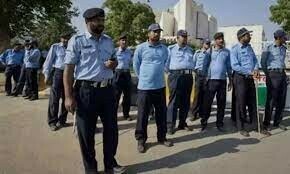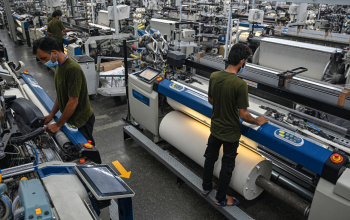Pakistan’s economy is on the rocks. It has never been in a promising shape, owing to ad hocism at work. It suffered policy truncation due to political instability and frequent dismissal of governments, rendering it an unsustainable status. Some of the biggest blunders were nationalisation of viable economic units and a culture promoting elitism. This has bred discontent and a lopsided developmental module. The miseries of the people of far-flung areas devoid of basic civic amenities, the sense of deprivation in Balochistan, revulsion in Khyber-Pakhtunkhwa and utter subjugation in Sindh have a finger to point at economic mismanagement. It is also no secret that the best economic minds were put in the saddle but they could not deliver.
A fundamental question is: what ails growth and development? And why Pakistan despite going to the IMF for 23 times has not been able to bounce back? India and Bangladesh too sought the Fund’s prescription, and were able to come out strongly. But in our case, it is an utter institutional collapse, lack of consistency and a paranoid decorum of fleecing the poor and the middle class at the cost of pampering the rich and the powerful that had led us to the brink. Poor tax resource base wherein the elite are conspicuous by their absence, major chunks of revenue going to debt-servicing and military, an undesired big size of government with an incompetent bureaucracy, coupled with perks and privileges for the retired manual, hardly leave behind anything to address education, health and infrastructure building.
This enigma cannot be addressed through piecemeal restructuring, as has been the case. Rather, it calls for dismantling the paradigm in vogue, and a fresh start by keeping the interests of the commoners in sight. A UNDP publication has articulately listed out the inherent flaws in the economic module of the country, and minced no words in saying that it is untenable and ‘not working’. The policy profile on Pakistan by World Bank Country Director Najy Benhassine has simply stated what the nation and those at the helm already know, but hardly have cared to rectify the system in vogue. Perhaps, this is why it rightly says that “any reform effort will face opposition”, as there are vested interests involved in resisting transformation.
The observations are worth considering as they points out that significant progress in poverty reduction has started to reverse, and only the elite are benefiting from the status quo. It is so because the system is infected with policies that hamper development, do not invest in human resource development and has churned out a stagnated low growth. The reasons are because despite being an agricultural economy, it has become a net importer of cash food products, and yield per acre is compromised owing to substandard seeds and fertilisers. Likewise, the inflated energy cost has made produce and exports uncompetitive.
The SOS exclusively makes a reference to climate change and notes that it is impacting the economy upside-down in all arenas. At a glance, it is a failure to induce in appropriate reforms, and whatever changes were brought in over the period of years were either an eyewash or not structured taking into account the long-term prospects of the nation. To summarise, the agriculture sector must be freed from subsidies, and price restrictions that lock smallholder farmers into a low-value farming system must go. Improving the efficacy of power distribution companies, bringing in the private sector in power production and broadening renewable energy mediums can help cut down on illogical power tariffs.
Pakistan’s prime source of foreign exchange is remittances. Around $30 billion per annum from the expatriates simply keeps the boat sailing, but the system has been unjust with them. Denial of the right to vote for the diaspora is a case in point. Similarly, more than $20 billion goes in oil imports and could be cut down to half the size if renewable energy is promoted. Learning from China and India in increasing yield per acre to five times and pushing on with SMEs can only make the real difference. Is someone out there to make a sense out of it?
Published in The Express Tribune, January 2nd, 2024.
Like Opinion & Editorial on Facebook, follow @ETOpEd on Twitter to receive all updates on all our daily pieces.
Read the full story at the express tribune website.


